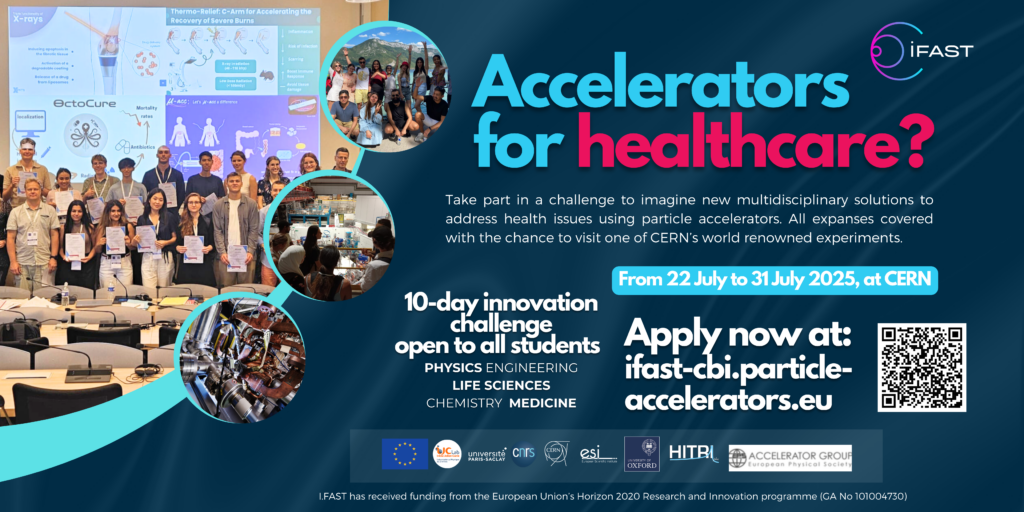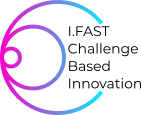
Who can apply?
Applications are welcome from all applicants.
- Preference will be given to students in the second cycle of university studies (typically between the 3rd and 5th year of university).
- We expect to select students from different academic fields: biology, chemistry, health, physics and engineering.
- Priority will be given to those studying in universities located in countries members of I.FAST (see list at https://ifast-project.eu/participants ).
I am graduating before the summer, can I apply?
Yes, you do not need to be enrolled as a student to apply.
Language
All activities will be held in English.
How to apply?
Submit your application here.
Application deadline
The application form has to be submitted before: Monday March 3rd 23:59, Geneva time.
What expenses are covered by the organizers?
The organizers will take care of your accommodation and meals from lunch on July 22nd until lunch on July 31st, excpet for dinner on Sunder, July 27th.
Travel expenditures to Archamps from your home (or University) will be covered on an economy class basis and within a limit of 300€.
Can I apply if I am not yet in my 3rd year of University or after my 5th year of University ?
Yes. Preference will be given to students between their 3rd and 5th year, however the selection panel will look at several other factors such as motivation and interest for the topic of the challenge.
Can we apply as a team?
Applications are individual. Among the selected participants the organizers will form 3 or 4 teams of 5 or 6 participants coming from different countries and field of studies. The aim is to maximize diversity (country, culture, studies, gender,…) within the teams.
To who does the intellectual property of the projects belong?
Each team retains collectively the intellectual property or the project they propose. However, the organisers will need to use some of the material presented during the challenge for reporting purpose.
Who are the sponsors of the I. FAST CBI?
The I. FAST CBI is primarily funded by the I. FAST project which is itself funded by the European Union’s Horizon 2020 Research and Innovation program under Grant Agreement No 101004730.
The following organization contribute in kind (mostly through membership of the steering committee): CERN, CNRS, ESI, Oxford University and IAEA.
The following projects and organization are contributing financially to the 2025 challenge: CERN, the I.FAST project, the HitriPlus project, TIARA and the Accelerator Group of the European Physical Society.
Where can I find further readings about particle accelerators’ applications?
An online course about particle accelerators.
What have particle accelerators ever done for us? Article published in Physics World.
Applications of Particle Accelerators in Europe: A report by the EuCARD-2 collaboration (also available at http://apae.ific.uv.es/apae/ ).
See also this page.
Selection rate
In 2022 the selection rate was 13%.
More questions?
Use the contact form below.
